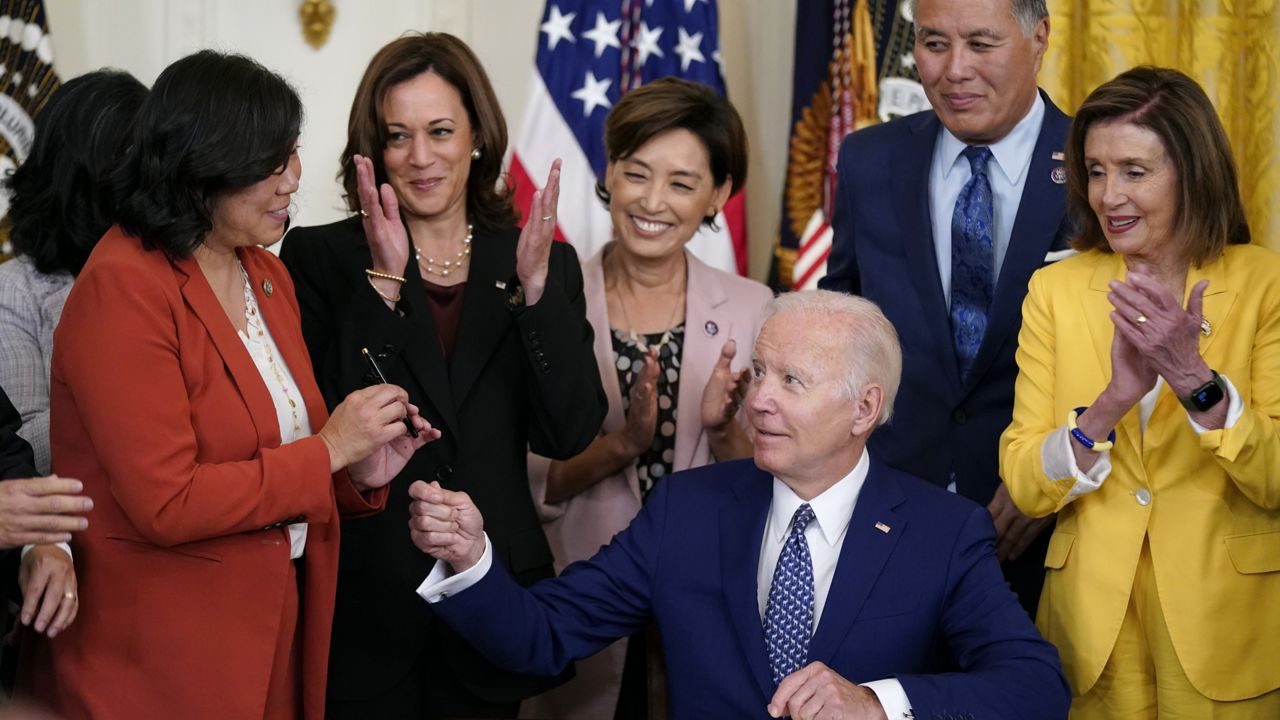President Joe Biden on Monday signed H.R. 3525 – or the Commission To Study the Potential Creation of a National Museum of Asian Pacific American History and Culture Act – into law, telling those assembled at the East Room of the White House that generations of AAPI individuals “have literally shaped the history and the contours of this country.”
“It's about time for a national museum to capture the courage, the character, the imagination and – maybe from my perspective, looking at it from a little bit from a distance – the dreams and the heart and the soul of the generations of our fellow Americans that came before you,” Biden added.
The bill does much as its name suggests: it will create a commission that will be tasked with studying the costs involved with the proposed National Museum of Asian Pacific American History and Culture, whether it should be considered as part of the Smithsonian Institution and possible locations in the Washington-area.
The legislation comes as visitors have flocked to the latest addition to the National Mall, the National Museum of African American History and Culture, which opened in 2016. Plans are underway for two other museums, the National Museum of the American Latino and the Smithsonian Women’s History Museum.
It also comes as the United States has seen an uptick in violence directed at the Asian American community over the past several years, a spike that was initially driven in part by then-President Donald Trump’s remarks referring to the coronavirus pandemic as the “China virus.”
Biden has been outspoken about being committed to combating a rise in anti-Asian hate crimes. Last year, the Democratic president signed the COVID-19 Hate Crimes Act into law. The law was one of the first major efforts by the government to combat the striking rise of hate crimes against Asian Americans and Pacific Islanders.
The president on Monday also noted that this month marks a little over a year since a gunman killed eight people, six of whom were women of Asian descent, in Georgia, which Biden called “a symbol of anti-Asian hate in America today.”
“Today it’s clear that the battle for the soul of America continues,” he added. “That's why a museum like this is going to matter so much. Museums of this magnitude and consequence are going to inspire and educate. More than anything else, it’s going to help people see themselves in the story of America.”
Vice President Kamala Harris also spoke of the bill’s personal importance to her at Monday’s signing, recalling her own mother’s journey from India to the United States to become a breast cancer researcher at just 19 years old.
“Growing up, my mother made sure that my sister Maya and I learned of the important, glorious history of Asian Americans, Native Hawaiians and Pacific Islanders in America,” she told the crowd. “Because that, of course, is part of the history of America.
“To teach this history is to help all of us as Americans understand where we come from, and to teach this history is to help us understand who we are,” Harris added.
The Associated Press contributed to this report.



